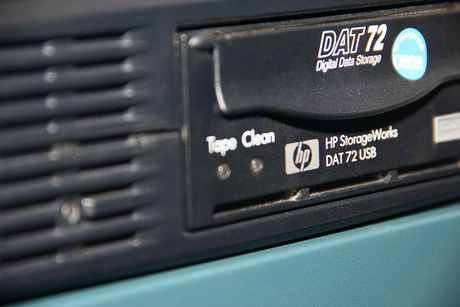Cutting the red tape of storage
By Michael Porfirio, Director of Systems Engineering, Commvault ANZ
Thursday, 27 August, 2015

To see an audio cassette or VHS in the shops or someone’s living room would almost be a bizarre sighting these days, a technological relic from a bygone time. However, in an enterprise technology environment, tape is yet to retire and still hides in many of our storage systems. So we find ourselves asking… is it time for businesses to finally say goodbye to tape storage?
Despite years of hype around the movement towards cloud, perceived reduction of costs and increased IT control, tape storage remains resilient to digital disruption and is still used by many businesses today.
It is primarily companies that operate in highly regulated industries such as law and financial services that are continuing to use tape, as ongoing audits and potential fines for data breaches drive the assumption that data must be kept on premises.
However, with recent advances in cloud computing, these organisations can now have peace of mind in their data being secure while maximising the cost benefits associated with the cloud.
Why change a good thing?
Though tape itself is affordable, it’s a costly affair to protect and maintain tape facilities from the environment — starting simply with the need for dark and dry conditions. One customer in Australia looked at the costs it incurred with its tape rotation, off-site service, tape media as well as maintenance costs across two sites, and compared it with the outlay it would have if it removed tape and instead leveraged AWS cloud.
It found not only was it able to cut 30% due to unnecessary manpower, media and recall costs, it was able to simplify its management of data and improve reliability in recovering data. The quality of tape can also diminish over time, and if you’re dealing with sensitive enterprise data, you can’t afford to lose even the smallest amount.
With the rapidly increasing rate at which data is being generated, storage facilities also need to grow, in turn, increasing the price of maintaining and managing the tape. Data growth is also forcing tape-bound enterprises to increase the frequency of backups, which can be labour intensive and once again very expensive. Further, since tape records data sequentially, retrieving data can be time intensive.
Comparatively, in the context of backing up in the cloud, these highly regulated companies can use a single platform to organise continuous backups and can easily recover data for those on-the-spot business continuity and compliance inspections.
What about security?
The often misguided belief that storing tape on-site reduces the risk of data breach or loss ironically increases the chance for data to be damaged. It sounds obvious but if something was to affect your worksite, by having data hosted on the cloud you would minimise the chance of critical company information being affected while at the same time maximising your ability to access this data from elsewhere.
Data security is always at the forefront of IT managers’ minds, because the reality is that the goalposts are constantly moving and a company’s reputation is at stake.
The fact is, cloud computing has become a far safer environment in recent years. Even if companies make the shift to storing data off-site, if it is still written on tape, archives still require a high level of physical security for protection from other threats.
This is a significant financial burden for businesses, especially as they are increasingly focusing on keeping costs down. Migrating data from tape to the cloud and following the relevant industry processes of encryption and security fundamentally provides a better level of security in the long run.
How does this affect compliance?
Another factor that regulated industries seem to forget is that technology is forever changing. This means businesses need to look at how tape technology fits with compliance reporting systems and how it relates to their ability to archive, backup and restore data written to tape years ago.
In many cases the original tape hardware has become obsolete, meaning not only are backup tapes no longer restorable with a backup solution, but organisations could fail in their accountability to the relevant authority.
In our ever-growing global world, more and more companies require flexibility to meet the specific requirements from their industry, different governments or shareholders. From privacy issues to data retention laws, there are myriad complex rules to be followed by organisations in order to remain compliant.
There was a time and place, but tape has had its day and companies have to let go of it if they wish to remain competitive and progressive. As we see momentum gaining around cloud computing, it is inevitable that storage will migrate too — finally leaving tape in the past.
Seven predictions that will shape this year
Pete Murray, Managing Director ANZ for Veritas Technologies, predicts trends that will have a...
ARENA jointly funds Vic's first large-scale battery storage
Two large-scale, grid-connected batteries are to be built in Victoria with the help of the...
Protecting next-gen storage infrastructures
Companies looking to modernise their overall IT infrastructure cannot afford to take a relaxed...







